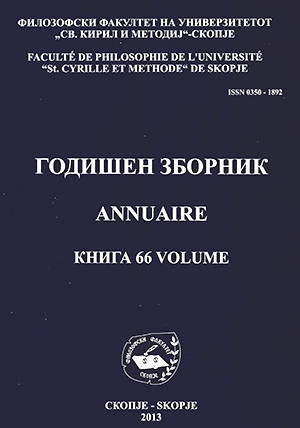THE DEFINITION OF RELIGION AND THE SACRED-PROFANE DICHOTOMY IN EMILE DURKHEIM’S THEORY
Abstract
The text explores the formulation of the sacred-profane dichotomy as the basis of religion, and thus of the social and cultural organisation of the primordial (but also of the modern) religious man. Emile Durkheim critiques the opinions according to which religion is the result of the individual perplexity caused by how mysterious the world appears to the primordial man, as well as those claiming that religion is a set of beliefs in a deity as a superior, powerful instance. To Durkheim, religion is a social, coercive phenomenon, consisting of beliefs, myths and rituals. The sacred is in the foundation of religious life, always in opposition to the non-sacred, the profane. There is a strict incompatibility, even antagonism, between the categories of the sacred and the profane — they are completely separate and make no contact. And yet, the complex sacred-profane dichotomy as the very essence of religion is only possible through their dialectical opposition, by the constant surpassing of their heterogeneity in the framework of the religious cult, by the proliferation of the contagious sacred in the non-sacred; as well as through the systems of permissions and restrictions, regulating the relations between them, protecting the sacred from the inferiority of the profane, and the profane from the powerful superiority of the sacred.
Downloads
Copyright (c) 2013 Marija Todorovska

This work is licensed under a Creative Commons Attribution 4.0 International License.


